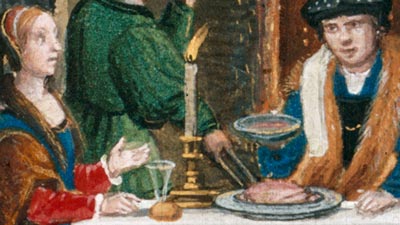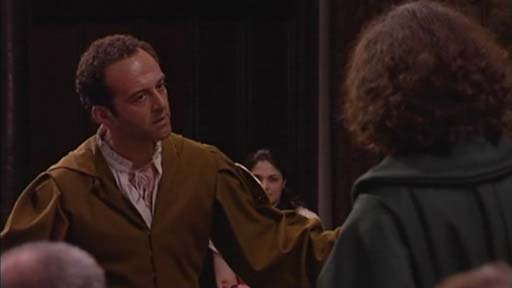Extract on Candles from The Eltham Ordinances
 Detail from Calendar scene for February: Feasting and dancing
Detail from Calendar scene for February: Feasting and dancingImage taken from The Golf Book.
Originally published/produced in S. Netherlands (Bruges), 1520-1530.
The Eltham Ordinances were passed in 1526 and presented in public as a serious attempt to reform the court, although it is now recognised that they also had the effect of increasing the power of Thomas Wolsey. They set out in detail how the court should be organised and run. In particular, they attempt to prevent members of the court and its servants from profiting from their positions. The Ordinances even sought to control what happens to the remnant of spent candles as a way of ensuring control of expenditure at the court. They also make a point of seeking to exclude specific groups from the court, including cripples, beggars and boys.
Item 27 – It is order that the King’s groom-porters and the Queen’s shall fetch no wax, white lights, wood nor coals more then reasonable ought to be spent, by the oversight of the gentleman ushers; and that the said groom porters do daily bring in the remain of the torches and other wax remaining overnight, by nine of the clock in the morrow; and for lack of doing thereof to loose for every time one week’s wages; the same to be overseen and executed by the clerk comptroller from time to time.
References:
The Society of Antiquaries (ed.), A Collection of Ordinances and Regulations for the Government of the Royal Household, Made in Divers Reigns. From King Edward III to King William and Queen Mary. Also Receipts in Ancient Cookery (London, 1790), p. 144.










